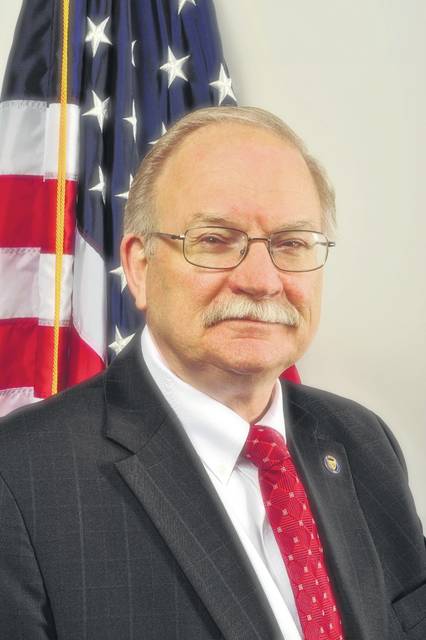
In the continuing series of articles on local government, I am discussing the important role the numerous boards and commissions play within the community, and the vital contribution the volunteers who serve their community as members of these boards make by providing input and direction impacting all of our futures. In this article, I want to talk about the Compensation Commission.
The Compensation Commission is the first of just four commissions whose job responsibilities are specifically detailed in the city charter. The other three are the Civil Service Commission, the Personnel Board of Appeals and the Planning Commission.
Section 2-12, part (a) of the city charter reads as follows: “A Compensation Commission is hereby created which shall determine the salaries of the mayor and the members of council. The commission shall consist of five members who are registered electors of the city appointed by the Mayor subject to confirmation by the council. The terms of office shall be five years except that the members first appointed shall be appointed for one, two, three, four and five years.”
“All first members shall be appointed within thirty days after the effective date of this charter amendment. Thereafter, members shall be appointed before Oct. 1 of the year of appointment. Vacancies shall be filled for the remainder of an unexpired term. No member or employee of the legislative, judicial or executive branch of any level of government or members of the immediate family of such member or employee shall be eligible to be a member of the commission.”
Part (b) continues: “The commission shall determine the annual salary of the mayor and the members of council which shall be the annual salaries, unless the legislative body, by resolution adopted by a majority of council, rejects them. The determination of the commission shall be binding thirty days following its filing with the clerk of council, unless rejected by the council. In case of rejections, the existing salary shall prevail. All salaries shall go into effect on Dec. 1 of the year in which they are filed.”
Part (c) concludes: “The Commission shall meet in 1975 and every odd numbered year thereafter and shall make their determination of such salaries prior to March 1 of said year.”
The members of the current Compensation Commission include James Daniel, John Garmhausen, Dan Heitmeyer, Tom Miller and Mary Ellen Paulus. The group, all residents of Sidney, includes an attorney, a banker, an engineer, a former mayor and a retired union president. At their last meeting (Feb. 15, 2017), they voted to increase the salary of the mayor to $5,250 (previously $5,000) per year, and the salaries of council members to $4,200 (previously $4,000) annually.
Shortly following the meeting of the Compensation Commission, an announcement was made of the salary increases. There was an online hue and cry of protest.
A recent survey of council members would reflect that, depending upon the individual member and the number of meetings and city and community events they may attend, they are making between $15.18 and $17.45 per hour.
While it may seem self-serving, the current salary of the mayor would reflect an hourly rate of about 56 cents an hour. The increase recommended by the Compensation Commission will add about 8 cents an hour — still 46 bits short of the national minimum wage (currently $7.25 per hour).
Before you feel too sorry for me, the disparity between my pay and that of council is caused in part by my choosing to more active than some of my predecessors, and having the opportunity to do so. However, I know from talking with former mayors that each of us has spent far more time than would be the case as a member of council.
I am frequently asked the question: “Why do you do it?” In actuality, there is a simple answer, and it can be found in many of the speeches that are delivered on Memorial Day and Veteran’s Day. Freedom is not free, and each of us owes a debt for living in this great country. I know I speak for my fellow council members when I write that our service is a partial payment of the interest on that debt.
In addition, I think that most of us want our lives to have meaning and purpose. Most of us want to leave the world a little better than we found it. I happen to believe strongly that serving others is the best work we can do in our lives, and I know that my colleagues on City Council feel the same.
Most, but not all of our boards and commissions require that the appointed individuals live inside the corporation. As I have in the past, I would encourage residents who have expertise in specific areas to volunteer to serve, so that when vacancies occur, we will have a ready list of interested candidates from which to choose. A listing of the boards and commissions is on the city’s website. If you have interest in one or more of them, please contact City Clerk Kari Egbert at 937-498-8148 or [email protected].
In my next article, I’ll talk about the Civil Service Commission. As noted previously, the Civil Service Commission is provided for within the city charter and meets as needed with responsibility for all initial appointments and promotions in the police and fire departments, as well as the resolution of appeals from employees in those departments.


